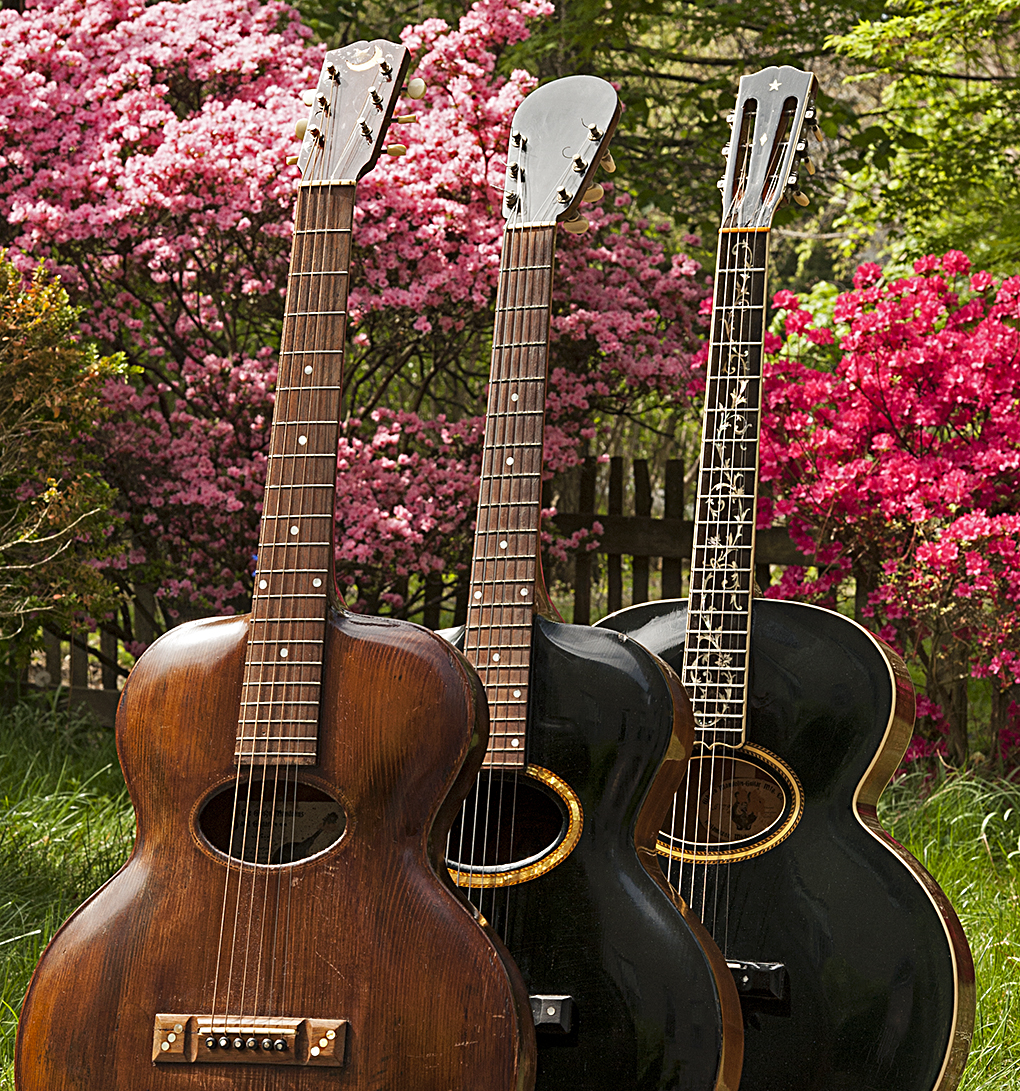I2 string arch tops.....Why don't I see any....Can a 6 string stand the conversion ?......Discuss...
Replies to This Discussion
-
12 strings are typically purpose braced for the extra load of the additional strings. Depending on the maker the beefier construction may include beefing up various and different elements of the build.
In any event I wouldn't try adding 6 additional steel strings and the resulting extra load to a guitar, arch top of flat top, that has not been designed for the load. In a worse case scenario doing this might permit the owner to be able to get the thing in a much smaller case though.... ;)
-
check out StefanSobell's site for his archtop designs....you may have to explore a bit but at least he's innovative..if it's not a
valuable ax I'd go for it...Are you going to beef it up inside?Change neck angle? What kind of 6?Still tryin'to think if ever I saw
archtop 12 but at least 1 must exist....older mandolas or baritone guitars would work well in my mind for converts.Lower tuning gets better results for longevity.
-
Martin did some 12 string archtops-maybe as prototypes? One sold on Ebay in the last year or so. Perhaps an old Harmony would be a good test bed. Cheap, overbuilt, and plentiful.
-
That's my plan... there are some Kays , Silvertones , and Harmony's with large enough peg heads...
-
You could do the Nashville high strung tuning on an archtop and then make sure you have a friend to play a regular 6 string. The issue then becomes logistical rather than structural.
Kidding aside the old Harmony archtops with the neck straightened and secured would be able to take the tension.Is there enough depth in the headstock to do a Rickenbacker style tuner arrangement?
-
The old Harmony truss rod is almost exactly the same size as a Stew Mac Hotrod-just extend the slot out for adjustment, and widen it ever so slightly. The original flat rods do tend to bend over time.
-
I had one, actually - sorta. It was a Global, made in Germany, with a plywood arch top and a single soundhole. I think the top was easily 1/8 inch thick, and I could probably stand on it without crushing it. Nice thick top. Yessiree. No structural problems there. It also sounded like a solidbody - a tinny sound with no volume or projection.
So, maybe they don't make many because they sound terrible. That's at least my experience.
-
An archtop guitar with a tailpiece has much less sustain than a flat top guitar or archtop with a fixed bridge and no tailpiece. As a result, archtop 12-strings are disappointing to most players.
-
Frank
I never heard of fixated bridge arch top.
What a idea!,
I have a bunch of those old Kay's
Ron
-
Here's a small squadron of early Gibson fixed bridge arch tops, cribbed from Robert Corwin's fine site, www.earlygibson.com - - -
Of course, unlike converting a modern arch top, these instruments were designed that way. . .
-
Epiphone recording C, D, and E do have carved archtop and fixated bridge. they do sound terrific btw :-)
-
Not a real answer to your question (about the conversion).
But I came across this fine example of a 12 string archtop (1990 D'Aquisto Excel-12):

The guitar was restored by Matt D'Ambrosio, check the man out! http://www.dambrosioguitars.com/resto_DAquisto.php
© 2025 Created by Frank Ford.
Powered by
![]()
